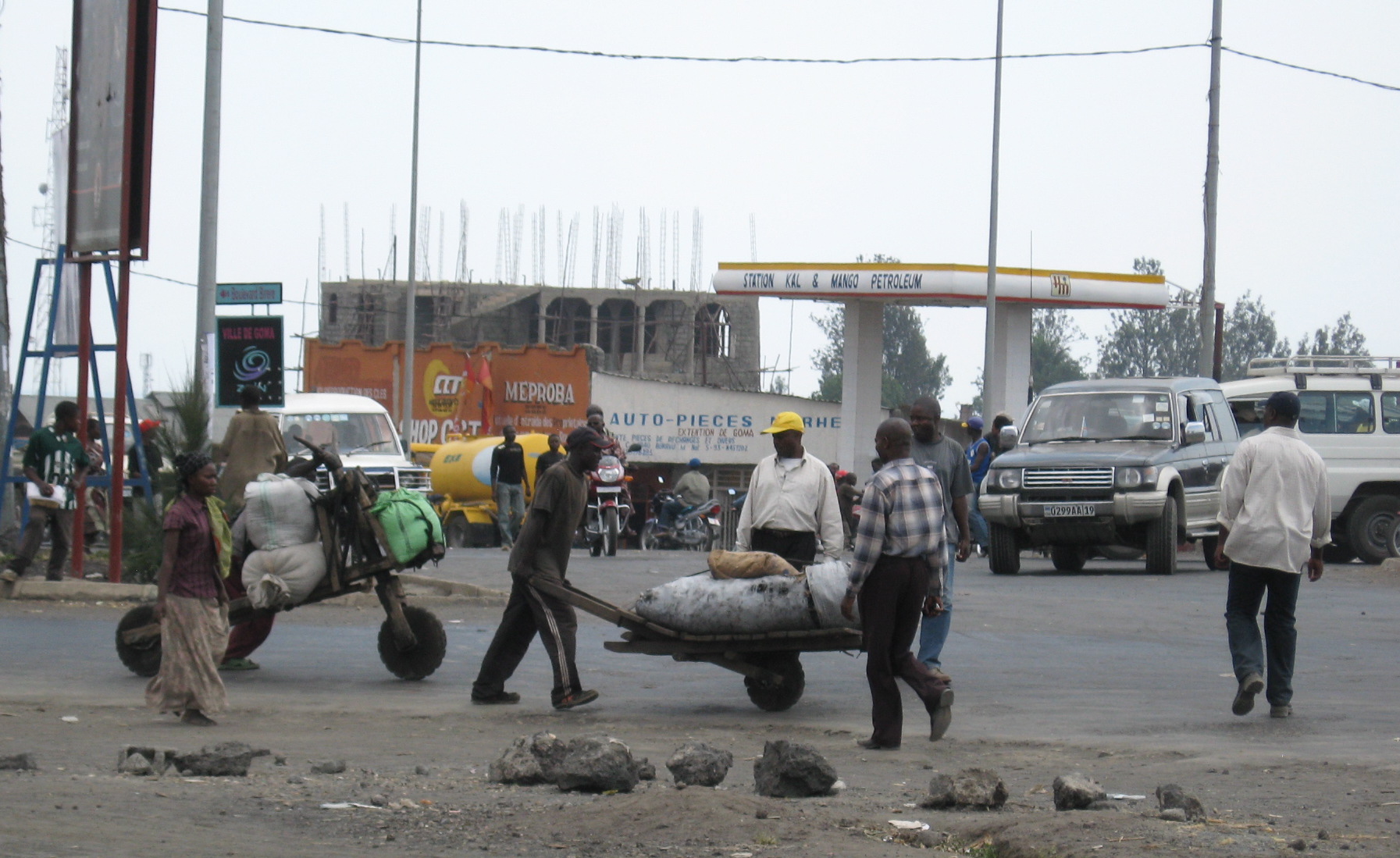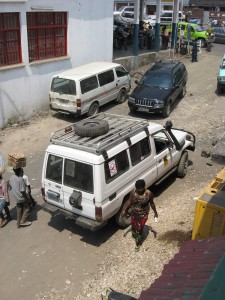August 2011, Vol. 238 No. 8
Features
Customized Security Eases Work In Unfamiliar And Difficult Places

Anyone who has traveled through central Asia — or “flown” virtually via Google Earth — can see why many armies throughout history have been stymied by the rugged terrain, remoteness and the lack of roads. Other regional hazards may include threats of abduction, illness and military activity.
But now, the world’s search for energy is drawing more members of the international oil and gas sector to challenging parts of the world such as this one.
Making wise choices about where to work and not to work, and the correct safety precautions, is important for any company in the oil and gas sector wanting to get its share of promising prospects while also managing the risks appropriately.
Just as pipeline constructors develop safety protocols around areas such as welding or venting a section of the line, they need to develop and apply safety procedures around traveling and working in difficult places such as Mexico, Colombia, Nigeria and central Asia.
Yet there are too many companies that rely on the experience or gut feel of their senior people, or on recommendations from their country’s external affairs department. The result may be illness, injury, kidnappings and fatalities.
As a 7,000-person company with global operations, Golder Associates has done its share of learning regarding health and safety in difficult places. From our roots in Canada in 1960, some of Golder’s earliest international projects were in Egypt and Greece.
In those early years, decisions on travel to difficult parts of the world were often made by the team leader, based on personal information and experience – and for some, the challenge of the project and a love of adventure.
But as Golder’s clients asked the company to provide services in more areas on the globe, it became clear that a more formal process was needed to keep employees healthy and safe during travel to and from these locations, and while working.

Customize Plans For Each Individual
Consider an employee normally based in South Africa, perhaps with experience in diamond mining, called upon to work on a diamond prospect in Canada’s Far North. While someone from Canada might be familiar with how to protect against cold, the person from South Africa might need to be taught about recognizing signs of frostbite. A Canadian working in South Africa, by contrast, might need to learn about personal safety against being car-jacked or mugged, threats not common in Canada’s Far North.
Accordingly, Golder has developed a procedure that involves a pre-trip risk assessment. These assessments are prepared by each individual, so they can catch all the risks that the team leader might not know – such as dependency on medications like insulin, so that resupply can be planned for in an emergency.
Recently, for example, a young Golder technician from Canada was being sent on a week-long assignment in supposedly tourist-friendly Moscow. He had decided to stay a few days to see the sights after the work assignment was completed early. However, his pre-trip assessment determined that the hotel he had booked for the “tourist” part of his trip was far too low-cost to have appropriate security measures to protect guests. He also had not determined if his mobile phone would work in Moscow.
Speaking no Russian and unable to read the Cyrillic alphabet, he was at grave risk of being lost on Moscow’s subways. The risk assessment process helped educate him regarding the risks, and allowed Golder to put measures in place to make his trip a safe one. This included having him book a guided tour of Moscow with a respectable operator, rather than travel on his own.
Sometimes, the risks are not obvious. A North American traveling in Africa, for example, will stand out in ways she has no idea about – how she dresses, how she walks and how, in many ways, she may signal “wealthy foreigner” to a pickpocket or other thief. Men and women face different hazards, and hazards differ by the ethnicity and even religion of the individual as well.
There will be times when the best safety measures might include wearing clothing and behaving in a way that helps the travelling professional blend into the surroundings. However, in some circumstances, that strategy would be unsound. In Mexico, for example, it may be best to have the company’s professionals wear bright, distinctive clothing with the company’s name clearly indicated – so that they are not mistakenly seen to be members of a rival drug cartel and possibly killed or abducted.
This underlies the importance of building an individual risk assessment for each person in each location.
Have Good, Current Information On Threats
Current information is vital to staying on the “safe” side of the line between “too dangerous” and “missing opportunities unnecessarily.” Government sources, such as the travel advisories prepared by many governments based in part on assessments from their diplomatic representatives, can be a good start. Internet searches and media reports are also helpful.
But nothing beats having local information prepared by skilled individuals who make it their business to know.
In a recent situation, Golder was considering work in a remote interior part of Colombia. However, our company’s South American offices in Santiago, Chile warned against it, saying that the news reports that had appeared in North American English-language media had been far from complete in describing the risks from insurgent activity.
Golder relies on external specialists to provide advice on risks to health and safety as well as for advice on travel if the risk is deemed acceptable to go.
Shift The Culture
Just as the oil and gas industry has shifted from a “whatever it takes” culture to one of “safety first,” its members must shift their culture from (as was the case with Golder) one in which travel plans are made informally, to a structured culture of risk assessment.
This includes gathering the right information, objectively analyzing the risks, deciding on a go/no-go and planning on an individual basis.
When Golder started to push this cultural change, the first reaction of many veteran travelers was, “I can’t believe that the company needs this level of detail about my travel plans.” However, partly because the change was presented not as meddling in their affairs but rather as an expression of genuine caring about the safety of them and their team, acceptance grew.
This does far more than protect the individual. It reassures family members that the employer is taking due caution, with procedures and backups in the case of trouble. Many times, an employee’s spouse has expressed appreciation for the care with which the travel is planned – including communications, such as providing a satellite-connected phone for situations where regular cellular phones may not work.
There are always risks in any kind of travel, even in places generally considered the safest parts of the planet. The key lies in understanding the risks, making the right decisions, and having well-developed plans for what might go wrong. As a result, a venture in a place such as Central Asia may turn out to be profitable rather than a costly, even tragic, lesson.
Author
Jane Mills, CSP, CHMM, is Principal and Vice President – Health and Safety for Golder Associates, based in Redmond, WA. Contact: 425-883-0777, e-mail: jane_mills@golder.com.
Brian Griffin is Principal and Senior Risk Management Consultant with Golder Associates, based in Houston. Contact: 281-821-6868, e-mail: brian_griffin@golder.com.
Points For Safer Travel
By Thomas L. Winn II
FrontierMEDEX, which offers integrated security and medical solutions for travelers, offers these suggestions for companies sending employees to potentially-hazardous parts of the world:
Avoid margin erosion. What might have seemed like a positive business venture may turn less positive when unexpected costs, possibly including armed guards and armored vehicles, must be added to the project costs. Being better informed about the risks can help protect profitability.
Use public information … appropriately. Government organizations, such as the U.S. State Department, are often a good source of primary, high-level information. However, they may have different priorities than the security of an organization or their personnel who likely come from a variety of nations, Issues like trade status and strategic alliances could take precedence over the security needs of an individual or a business organization, which may not be a government’s primary mission. A specialist provider of information on travel, by contrast, should be a business partner with a focus on providing information that is accurate and unbiased.
Look for recommendations … not just data. A travel security consultant should be able to provide you with information you can act on, with recommendations on how to manage the risk in a way that allows your company to meet its business goals. Their goal should be to help your company make the right decisions.
No one lives in a bad neighborhood. While having people in a location to provide on the ground intelligence is a great resource, the reality can be that a threat to a traveler is not a threat to them. Additionally people are generally loath to talk about how their home may be a dangerous place. They know the danger areas and stay away from them. A visitor to that country most likely will not know what streets are dangerous at what time of day, or what customs and practices they bring could get them in trouble or offend someone. A good provider will offer information that does not carry the unintentional bias of local personnel, and recognizes the need to inform a traveler of threats locals may inadvertently not think of as important.
Tom Winn is Senior Chief of Operations/Intelligence with FrontierMEDEX, based in Houston. Contact: 713-430-7300; tom.winn@frontiermedex.com.





Comments